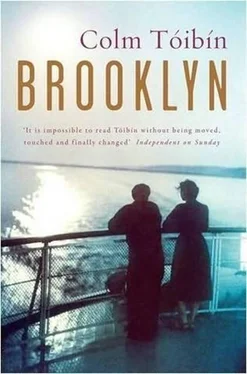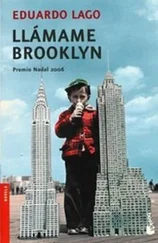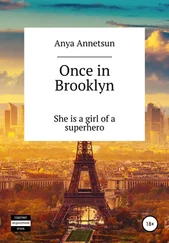Mrs. Kehoe seemed pleased by the pair of stockings and offered to pay for them, but Eilis said they were a gift. That evening, during supper, they all talked about Bartocci's Famous Nylon Sale, which always happened without warning, yet they were amazed when Eilis told them that even she who worked there had no idea the sale was going to happen.
"Well, if you ever hear, even a rumour," Diana said, "you'll have to let us all know. And the nylon stockings are the best, they don't run as easily as some of the others. They'd sell you garbage, some of those other stores."
"That's enough now," Mrs. Kehoe said. "I'm sure all the stores are doing their best."
With all the excitement and discussion surrounding the nylon sale, Eilis did not notice until the end of the meal that there were three letters for her. The minute she came back from work every day she had checked the side table in the kitchen where Mrs. Kehoe left letters. She could not believe that she had forgotten to check this evening. She drank a cup of tea with the others, holding the letters in her hand nervously, feeling her heart beating faster when she thought about them, waiting to go to her room and open them and read the news from home.
The letters, she knew by the handwriting, were from her mother and Rose and Jack. She decided to read her mother's first and leave Rose's until the end. Her mother's letter was short and there was no news in it, just a list of the people who were asking for her with some details of where her mother had met them and when. Jack's letter was much the same, but with references to the crossing that she had told him about in her letter and had said very little about in her letter to her mother and Rose. Rose's handwriting was, she saw, very beautiful and clear, as usual. She wrote about golf and work and how quiet and dull the town was and how lucky Eilis was to be in the bright lights. In a postscript, she suggested that Eilis might like sometimes to write to her separately about private matters or things that might worry their mother too much. She suggested that Eilis might use her work address for these letters.
The letters told Eilis little; there was hardly anything personal in them and nothing that sounded like anyone's own voice. Nonetheless, as she read them over and over, she forgot for a moment where she was and she could picture her mother in the kitchen taking her Basildon Bond notepad and her envelopes and setting out to write a proper letter with nothing crossed out. Rose, she thought, might have gone into the dining room to write on paper she had taken home from work, using a longer, more elegant white envelope than her mother had. Eilis imagined that Rose when she was finished might have left hers on the hall table, and her mother would have gone with both letters in the morning to the post office, having to get special stamps for America. She could not imagine where Jack had written his letter, which was briefer than the other two, almost shy in its tone, as though he did not want to put too much in writing.
She lay on the bed with the letters beside her. For the past few weeks, she realized, she had not really thought of home. The town had come to her in flashing pictures, such as the one that had come during the afternoon of the sale, and she had thought of course of her mother and Rose, but her own life in Enniscorthy, the life she had lost and would never have again, she had kept out of her mind. Every day she had come back to this small room in this house full of sounds and gone over everything new that had happened. Now, all that seemed like nothing compared to the picture she had of home, of her own room, the house in Friary Street, the food she had eaten there, the clothes she wore, how quiet everything was.
All this came to her like a terrible weight and she felt for a second that she was going to cry. It was as though an ache in her chest was trying to force tears down her cheeks despite her enormous effort to keep them back. She did not give in to whatever it was. She kept thinking, attempting to work out what was causing this new feeling that was like despondency, that was like how she felt when her father died and she watched them closing the coffin, the feeling that he would never see the world again and she would never be able to talk to him again.
She was nobody here. It was not just that she had no friends and family; it was rather that she was a ghost in this room, in the streets on the way to work, on the shop floor. Nothing meant anything. The rooms in the house on Friary Street belonged to her, she thought; when she moved in them she was really there. In the town, if she walked to the shop or to the Vocational School, the air, the light, the ground, it was all solid and part of her, even if she met no one familiar. Nothing here was part of her. It was false, empty, she thought. She closed her eyes and tried to think, as she had done so many times in her life, of something she was looking forward to, but there was nothing. Not the slightest thing. Not even Sunday. Nothing maybe except sleep, and she was not even certain she was looking forward to sleep. In any case, she could not sleep yet, since it was not yet nine o'clock. There was nothing she could do. It was as though she had been locked away.
In the morning, she was not sure that she had slept as much as lived a set of vivid dreams, letting them linger so that she would not have to open her eyes and see the room. One of the dreams was about the courthouse at the top of Friary Hill in Enniscorthy. She remembered now how much the neighbours had dreaded the day when the court sat, not because of the cases that were reported in the papers of petty theft, or drunkenness, or disorderly behaviour, but because sometimes the court ordered children to be taken into care, put into orphanages or industrial schools or foster homes because they mitched from school or caused trouble or because of problems with their parents. Sometimes, inconsolable mothers could be found screaming, howling outside the courthouse as their children were taken away. But her dream had no screaming women, just a group of silent children, Eilis among them, standing in a line, knowing that they would soon be led away on the orders of the judge.
What was strange for her now as she lay awake was that she had seemed to be looking forward to being led away, she had felt no fear of it. Her fear, instead, was of seeing her mother in front of the courthouse. In her dream she found a way of avoiding her mother. She was taken out of the line, and through a side door and then on a car journey that appeared to last as long as she could stay asleep.
She got up and used the bathroom very quietly; she thought that she would have breakfast in one of the diners on Fulton Street, as she had seen people do on her way to work. Once she was dressed and ready, she tiptoed out of the house. She did not want to meet any of the others. It was only half past seven. She would, she thought, sit somewhere for an hour, having a coffee and a sandwich, and then go to work early.
As she walked, she began to dread the day. Later, as she sat at the counter of a diner looking at a menu, snatches of another dream that she had only half remembered when she woke came to her. She was flying, as though in a balloon, over the calm sea on a calm day. Below, she could see the cliffs at Cush Gap and the soft sand at Ballyconnigar. The wind was propelling her towards Blackwater, then the Ballagh, then Monageer, then Vinegar Hill and Enniscorthy. She was lost so much in the memory of this dream that the waiter behind the counter asked her if she was all right.
"I'm fine," she said.
"You look sad," he replied.
She shook her hair and tried to smile and ordered a coffee and a sandwich.
"Cheer up," he said in a louder voice. "Come on, cheer up. It'll never happen. Give us a smile."
Читать дальше












